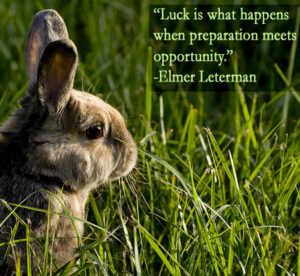How to Find Your Fitness Niche
As a lot of you probably know, I’m pretty much known as a “baseball training guy” – and rightfully so, as about 80-85% of our athletes at Cressey Performance are baseball players.
Most people are surprised to find that I really never played baseball at a high level. While I was super active in it growing up (my mother jokes that I actually taught myself to read with baseball cards), I actually had to give baseball up at the end of eighth grade so that I could focus on tennis, my “stronger” spring sport. And, to take it a step further, when high school ended, I went off to college in 1999 fully expecting to become an accountant. Seriously.
Around that same time, though, I had some health problems – and my shoulder was already a wreck from tennis. Those factors “beckoned” me to a healthy lifestyle – and that’s when I made the decision to transfer to an exercise science program and focus on my new passion as a career. I did a double major in exercise science and sports/fitness management, and took part in internships in everything from personal training to cardiac and pulmonary rehabilitation.
When I headed off to graduate school in 2003, I anticipated going in to the research world. About a month after I arrived on campus at UCONN, though, I caught the strength and conditioning bug and was hooked – for life. Interestingly, though, in those first few years, I really didn’t work with baseball much at all.
It wasn’t until I got out in to the “real world” that I just happened to start working with a few high school baseball players when I first moved to Boston. They were great kids, and I had a lot of fun training them – and they got great results that drew a lot of attention to the work I did with them. I was already a big baseball fan, and given my history of shoulder problems, I really enjoyed learning everything I possibly could about arm care – so it was a great fit.
The rest, as they say, is history. We now have 44 professional baseball players from all over the country here to train with us at Cressey Performance because they believe our expertise, environment, systems, and passion give them the best opportunity on the planet to be successful in their baseball careers. I have guys who swear by my resistance training, medicine ball, mobility, soft tissue, movement training, and throwing programs even though I never even played a single game of high school – let alone collegiate or professional – baseball. I’ve found my niche – but as you can tell, I never forced it.
What do you think I would have said if you had asked me in 1999 what my ten-year plan was? I would have told you that I’d be filing tax returns in early April, not following all our athletes on opening day around the country.
And, if you had asked me in 2004 what my five-year plan was, I’d have told you that it was to become a great muscle physiology research. I probably would have commented on how cool it was that the Red Sox won the World Series for the first time in 86 years – but wouldn’t have had the foresight to note that I’d someday go on to train two guys from that roster who have 2004 world championship rings.
My point is that you can’t force a fitness niche; you have to discover and then develop it. A lot of stars had to line up the right way for me to get to where I am with working with a baseball population, but as Thomas Jefferson once said, “I find that the harder I work, the more luck I seem to have.”
Getting sick forced me to learn how to better take care of my body – and that led me to the fitness industry and strength and conditioning.
Having shoulder pain motivated me to learn more about shoulder health.
Being a “non-baseball guy” growing up forced me to do a lot more listening than talking with our athletes early-on, as I had to learn their culture. It also put me in a position to never accept stupid training principles (like distance running for pitchers) simply because they were “tradition” – because crappy training was never a “tradition” that I’d learned.
If I’d purposely gotten sick, whacked myself in the shoulder with a sledgehammer, and then read every book on baseball tradition that I could, do you think I’d be where I am today? If you answered “yes,” put down the glue you’re sniffing and start reading this again from the top.
Every business consultant in the fitness industry raves about how important it is nowadays to get a niche. Train middle-aged female fat loss clients only. Or, maybe it’s 9-12 year-old kids. My buddy Eric Chessen even works exclusively with fitness for kids in the autism spectrum. I agree completely with these consultants’ advice – but your appropriate niche won’t magically appear unless you experience a lot of different settings and find the right fit for you, then follow up on it by educating yourself as much as possible by reading/watching everything you can, expanding your network of colleagues, and finding solutions to problems others haven’t been able to solve.
If you are going to do something exclusively, you better be:
a) passionate about it
b) good at it
c) sure that it alone can financially support you
d) excited about the possibility of becoming an expert and contributing to the existing body of knowledge in that realm
e) willing to potentially pass up on opportunities in other realms
To be very candid, I just don’t think that having specific 5- and 10-year plans is necessarily a good idea. Sure, it’s okay if we are talking about financial planning, marriage, etc. – but when it comes to professional goals, there are just too many factors that can change things on a dime and turn you in a new direction. I love what I do now, but couldn’t tell you for the life of me where I’ll be in 5-10 years – and I happen to think that I have a pretty good grasp on where I’m going, as compared to the rest of the fitness industry. If I was just leaving college today, I’d definitely be taking it one day at a time!
How about you? What’s your niche – and how did you discover and develop it?
Related Posts
Want to be a Personal Trainer or Strength Coach? Start Here.
7 Steps for Attacking Continuing Education in the Fitness Industry







